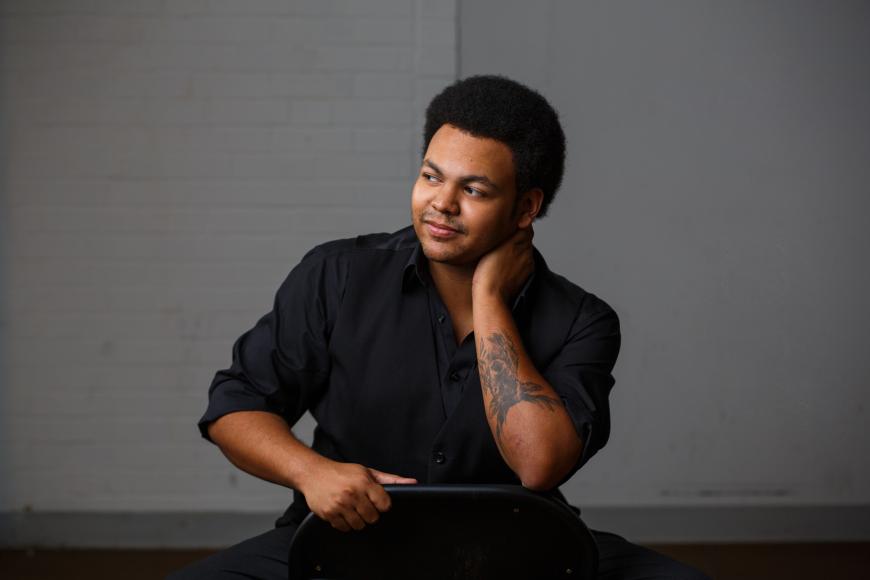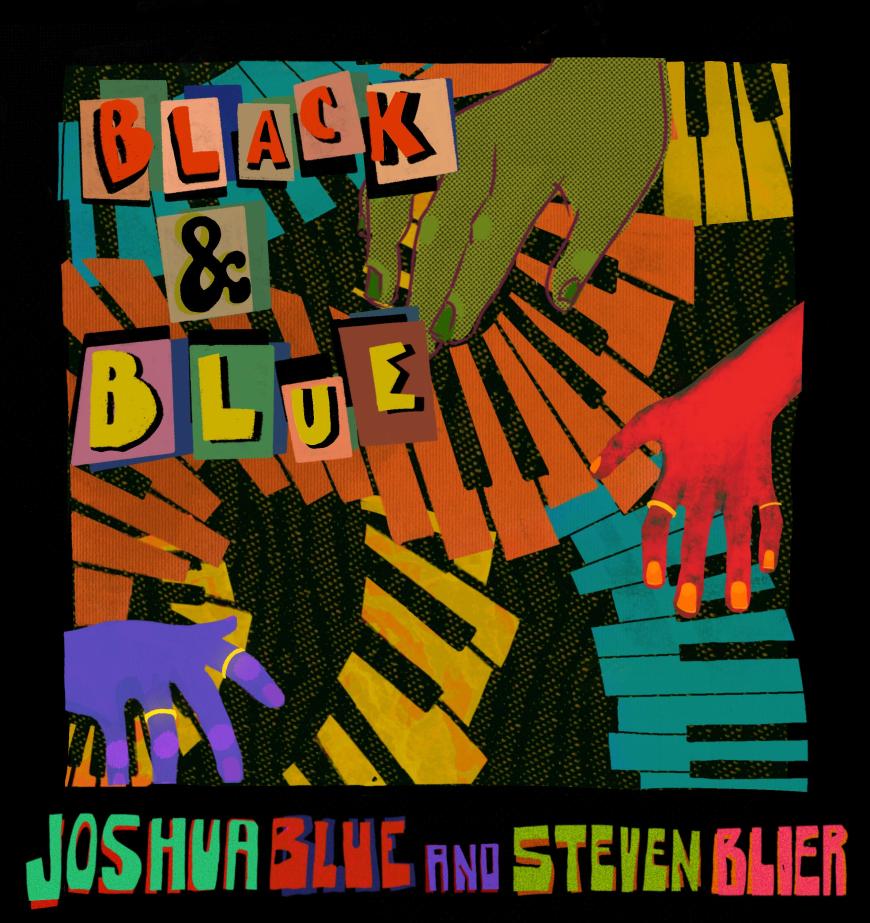
What would the world sound like without Steven Blier, the co-founder and artistic director of the New York Festival of Song (NYFOS)? Committed to uncovering diverse repertoire and enlarging our appreciation of “art song” from around the world, the pianist is now going Black & Blue with his latest project for NYFOS Records.
The idea for the album began in the winter of 2017, when Blier conceived a show called “PROTEST” for The Juilliard School. With the goal of connecting Black Lives Matter “with the long history of artist activism,” he contacted British American tenor Joshua Blue, whose upward trajectory has since propelled him to lead roles at the Metropolitan Opera and Opera Philadelphia.

Together, the two men looked at Fats Waller’s “Black and Blue,” an unapologetic song about racism, which Louis Armstrong later championed. Written in 1929, with lyrics by Andy Razaf, the song looks at what life was and is still like for Black people in America. Blue, who had until then been singing standard classical repertoire, took to it and the other songs Blier assembled for the program as if he’d been incarnated to sing them. Freeing himself entirely from operatic convention — his style and phrasing are thoroughly fresh and of the moment — he and Blier began to explore the 13 songs that would go onto this 48-minute recording.
Blier is responsible for 12 of the arrangements, six of which were created in partnership with Jason Yeager. When a song demands to be swung, he and Blue swing. And when the lyrics get serious, they make sure that you hear every word. Their performance of Lewis Allan’s “Strange Fruit,” in an arrangement that pays tribute to the civil rights advocacy of the great Nina Simone, is one of the most powerful I’ve heard.
The program’s final song is listed as a “bonus track.” As Blier explains in the expanded liner notes (only accessible online), Blue advocated including Harry Warren’s “At Last” on the recording. Although Blier didn’t think there would be enough time to work it up, the pair found themselves ahead of schedule. With only minimal rehearsal, they recorded two takes and, without any edits, decided to include the second.
There is a delicious backstory to Blue’s advocacy for “At Last.” In his senior year at Waubonsie Valley High School, he performed the song in full drag for the school’s “Mr. WVHS” competition. As he explains in the liner notes, “It was my first time experimenting with understanding who I am, playing with gender, picking music that I wanted to sing because I wanted to sing it, not because I was told to. If I had to pick a moment in my life that could be considered the start of my artistic journey, I think that would be it. It was the first time I made music for the sake of making music, nothing more, nothing less.”
Blue sings “At Last” and the other songs on this album in a voice so androgynous that, if you didn’t know his gender, you might wonder what it was. The repertoire is far-ranging, incorporating everything from Stevie Wonder’s “Big Brother” and Paul Simon’s “American Tune” to Hall Johnson’s “Ride On, King Jesus.”
Blue’s diction is some of clearest I’ve encountered, so printed lyrics are neither offered nor needed, but Blier’s liner notes are a treat. You’ll learn, for example, that “Red Beans and Rice” was a favorite of blue artist Gladys Bentley, a self-declared “male impersonator” with a Wagnerian-sized voice who was one of the stars of the Harlem Renaissance.
“You must hear this fabulous album” may be a cliche, but it is apt. We live in a vibrant, fast-changing world where barriers are breaking, and if you are willing to engage, your spirits will soar as you listen.

